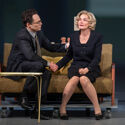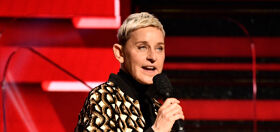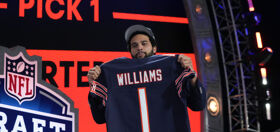
Don’t be fooled by the cover, Bob Morris’ Assisted Loving is not about a stooped old man eating roast beef in Florida. Well, it is – at times – but this memoir’s more than that.
Picking up soon after his mother’s death, Assisted Loving chronicles former New York Times columnist Bob Morris’ struggle to find his eager beaver father a date. Surely trolling personal ads for one’s father can take a toll, but, after all the arguments and aborted missions and, yes, his own dating misadventures, Morris finally learned to love his father. And, really, that’s what this book’s about: learning to love a parent – and yourself – as you look toward at times bleak future.
Morris recently sat down with our editor to discuss how this experience helped him come of age, the ethics of memoir writing and how his father led him toward his own relationship.
Andrew Belonsky: What drew you to writing?
Bob Morris: A tragic level of narcissism and a need for attention that I couldn’t get on the stage.
AB: Writing was your backup?
BM: Yeah, I think so.
AB: Do you like it?
BM: Let me say something right now, before I ever wanted to write a book, I wanted to go on a book tour. I just wanted the attention! But I was very lucky – The Times gave me a column for eight years. I could write in a personal way and really get some emotional material out there, I didn’t have to chase stories like most reporters, and I got to really be my own little talk show host. The New York Times is a very good platform to showcase your personality, so I loved that and I never expected to write a book. Being an author was not ever one of my goals. I thought it was too hard and I have a short attention span, but ultimately when my father asked me to help him date and when he said some of the emotional things after my mom died, I did just start taking notes, I couldn’t help but to tell a story.
AB: You were taking notes as this was going on?
BM: You know, just like any opportunistic writer does with his family.
AB: And how does your family feel about this?
BM: Well, it’s tricky. They’re fine with it, they’re used to it. Don’t forget, they were written about in the New York Times for years. They’re not show offs, they’re definitely shy people. Anyway, what I was going to say was that if your father is basically begging you to help him navigate personal ads and date women in the wake of your mother’s death and you ask him why and he said “It worked so beautifully with your mother for fifty years that I want to do it again” – how can that not be an emotional milestone between father and son? And if you’re a writer, you have to use it.
AB: You were processing this all as it happened, but then when you sat down to write the book, did you process it all differently? I’m interested because there have been scores of people who have written about their family and, of course, because of James Frey, authors are coming under greater scrutiny. I’m also interested in how memories fit into the wider narrative – did you fit memories into the narrative?
BM: My book actually has a little disclaimer in it – there is definitely some compression. Everything would check out, but you’re right, in this age of people looking for anything – God forbid this book should become a big success and be opened up for scrutiny! But it could blow up – people need a good father and son book and the public doesn’t seem to be minding the marginal aspect of the gay thing. But, okay – this woman that my father ended up with read it and I’m cringing because I’m such a bitch that of course I make fun of the fact that she wears a bad wig. Thank God that didn’t bother her, but she believes the roast was not overcooked, but Ira, my husband, said it was. So, you know, who knows how people will react? But I was luckier because when you’re trained as a journalist, you can’t fuck around. I think my nature was to stay very close. But, if somebody were to come after me for the notes, the majority of it is all there.

AB: Was the whole process after your mother’s death and “pimping for your father,” as you phrased it, and going on all those dates, was this a second coming of age for you?
BM: It was the first coming of age for me. My father became younger than me in every way – he wanted to go out there and have fun. He was a very true man, a great personality, but he didn’t know how to date, so he was in a vulnerable position and he turns to the single gay son who is not preoccupied with a family and two homes and running a business – a single, gay, writer son. Who better to drag into his search for new love than me? So, it was a first coming of age. I finally, at the age of 45, grew up and said, “Why are you picking on your dad? Why not open your arms to the guy, accept the fact that he loves you, accept the fact that he’s terribly embarrassing and a pretty crappy dresser and, on top of that, a Republican? Why not just love him?”
AB: That’s something that you say in the book – chilling with an older parent isn’t just a responsibility, it’s an opportunity, which I was struck by.
BM: I think it’s true. Eventually everybody has to – usually the first thought you have is “Oy, what if dad dies?” People start having those thoughts in their thirties. I was well into my forties when I had to face the fact that my dad was basically as lonely as a teenager in college, so it was – I can’t believe it took me that long to learn to love my father. Then, once that was in motion, I could open up to be in love myself. I’m basically a self-hating gay, a self-hating Jew who ended up with a man named Ira Silverberg!
AB: But you don’t still describe yourself as self-hating?
BM: Not anymore. My dad helped me through that.



















